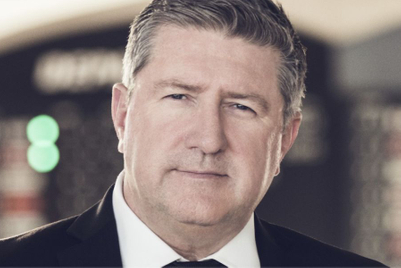.jpg&h=570&w=855&q=100&v=20250320&c=1)
When Campaign US broke the story of Omnicom Advertising Group's creation last month, there were plenty of interpretations.
An overriding one among external wags was that the US-based ad giant was belatedly aping other holding groups’ centralisation efforts. Omnicom’s individual advertising networks were pretty self-determining, compared with its rivals, and each reported to Omnicom’s chairman and chief executive, John Wren. Now BBDO, TBWA and DDB, as well the Advertising Collective, which includes agencies like Goodby Silverstein & Partners, will be overseen by a single leader. Not only that, the chief executive is Troy Ruhanen, previously the CEO of TBWA, traditionally the junior of the global brands.
It was back in 2015 when Maurice Lévy, then chief executive Publicis Groupe, and under pressure after a “run of disappointing results”, launched Power of One—an attempt to organise around client needs. At the time, POO was itself likened to WPP’s existing client-specific bespoke agenciesi, a strategy dubbed “horizontality”. Publicis Groupe’s approach of selling suites of services has borne financial fruit. It has outperformed its set in recent times, and its Q2 revenues rose 7.1% year on year. But one of the things it hasn’t done, in my opinion, is fertilised fields of flourishing creative. That said, I’m waiting for the creative benefits of Dentsu and WPP’s crops of restructures, too.
In the final print issue of Campaign in 2023, I wrote a feature that asked whether advertising agencies would surviveii. I spoke to Ruhanen, who had run TBWA globally since 2014, after finding out it had quietly become Omnicom’s largest creativeiii network by (among other things) expanding the services it offers brands. He advised agencies to “think about how brands are built”, citing client Apple: “Apple isn’t built on advertising alone. So, why do we think advertising is the answer to everything?” He continued: “How do you really apply our creative minds against either those problems or opportunities or experiences where the brand could really make a positive impact on people’s lives?”
It seems to me that TBWA had less to lose by adapting to the digital disruption of the past decade(s) than its siblings. But it's not as simple as that. It could be argued that TBWA's ripening reflects the network prioritising innovation above conserving its profit margin. Focusing on farming the same fields more intensively is a risk. Soil needs a break. Different plants might do better in warmer climes. Elsewhere, the reduced needs of the international conglomerates long served by DDB and BBDO’s many global offices hit TBWA less hard. Major clients Nissan and the aforementioned Apple stayed trueiv.
So, maybe Ruhanen’s ascension is not as surprising after all. Coincidently, Andrew Robertson, the long-time chief executive of BBDO, announced plans to step up to chairman three weeks before OAG was announced—although the most relevant adjacent news story might have been the hiring of Nancy Reyes as chief executive of BBDO Americas in 2023. Reyes, the former chief executive of TBWA\Chiat\Day New York, will run BBDO globally. Another Ruhanen lieutenant, Erin Riley, the chief executive of TBWA\Chiat\Day Americas, will replace him as global CEO of TBWA. Alex Lubar, chief executive of DDB, and James Fenton, CEO of the Advertising Collective, complete the global network leader line-up.
Sources close to Omnicom insist this isn't a pragmatic consolidation or a half-hearted version of its rivals' approach. OAG joins Omnicom Media Group, Omnicom Precision Marketing Group and Omnicom Public Relations Group in the stable. OAG will review local operations, and there might be some consolidationv, but this is not new. In India last year, Omnicom established a forerunner of OAGvi and appointed a single CEO. Belgium already has one, too. The cash saved by consolidating some services and contracts will be used to irrigate the group with new tools and capabilities.
So what does it all mean? None of it is sexy or exciting. But that might not matter. The truth is we will find out as the set-up matures. There is an expectation that the agency landscape will undergo some major changes in the next few years. Will OAG and the innovation it precipitates be enough to ward off threats to its advertising brands? The answer—in part—will depend on how successfully its creative minds can make a positive impact on the problems and opportunities its clients face.
Maisie McCabe is the UK editor of Campaign.

i Since then, replaced by smashing agencies together
ii And people accuse me of being too negative…
iii Don’t mention the “a” word
iv The agency should get credit for this, however
v Not in major markets such as the UK
iv Called Omnicom Advertising Services, but due to be rebranded as OAG


.jpg&h=334&w=500&q=100&v=20250320&c=1)
.jpg&h=334&w=500&q=100&v=20250320&c=1)

.jpg&h=334&w=500&q=100&v=20250320&c=1)
.png&h=334&w=500&q=100&v=20250320&c=1)
.png&h=334&w=500&q=100&v=20250320&c=1)









.jpg&h=268&w=401&q=100&v=20250320&c=1)

.png&h=268&w=401&q=100&v=20250320&c=1)